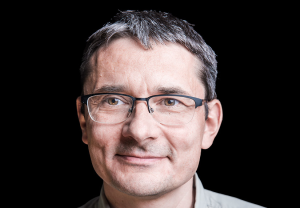The goal of the project is to study rural social movements (RSM) as actors in social and political processes after the 1989 transformation in Poland. Civil society played a key role in the transformation processes, especially in its early stages. While the role of labor (trade unions, employee organizations, and otherwise active workers) has been very well researched, the role of rural (farmer) movements was hardly ever an object of a systematic study, despite their intensive activity, large membership, and the uniqueness of challenges that this group was facing.
The rural areas and their inhabitants are forgotten actors of the Polish post-1989 political and economic transformation. This is all the more acute as the vast majority of Poles hail from rural areas going back one or two generation. Therefore, farming and the countryside are important elements of their identity. So far, a lot research has been done on the role of the “Solidarity” social movement and blue-collar worker organization in the transformation, while not much is known about the rural social movements. This project aims to fill this gap.

Wenzel, Michał
Principal Investigator
Specialization
sociologist, specializing in methodology of social research, political attitudes and social aspects of mass media
First and last name
Michał Wenzel
Academic degree or title
Ph.D. / Associate Professor
Email
This email address is being protected from spambots. You need JavaScript enabled to view it.
Discipline
political-science-and-public-administration
Institute
Institute of Social Sciences
Position
profesor uczelni
Role in the Institute
{"funkcja-w-instytucie0":{"Funkcja":"","\u0141\u0105cznik":"","Nazwa w mianowniku":"Institute of Social Sciences"}}
Role in the Faculty
{"funkcja-na-wydziale0":{"Funkcja":"","\u0141\u0105cznik":"","Nazwa w mianowniku":"Faculty of Social Sciences in Warsaw"}}
Role in the Department
{"funkcja-w-katedrze0":{"Funkcja":"","\u0141\u0105cznik":"","Nazwa w mianowniku":"Department of Sociology"}}
Role in the Research Center
[]
Ph.D. / Associate Professor Michał Wenzelsociologist, specializing in methodology of social research, political attitudes and social aspects of mass media
Research Methodology
Research questions that we will pose are related to the origins, impact and dismantling of the rural movements. The first question concerns the formation of the movements – what structural factors are conducive to establishing such movements? What is the catalyst motivating the participants to self-organize? We will begin with an analysis of the socio-economic and political conditions underlying the start of spontaneous protests.
The second question pertains to the institutionalization phase. As a movement develops structures and procedures, it becomes an organization. RSM tend to relatively early adopt political goals and start acting as political parties. We want to know what were / are their political goals? How effective were rural movements in articulating these goals? We will examine the parliamentary representation of RSM, and the role of RSM activists in the central and local governments. We will try to trace the link between the political side (acting within institutions) and social activism (acting as civil society organizations).
The third aspect of our research is related to the movements’ disintegration. We will investigate why these rural movements disintegrated? Was it: a) because they completed their mission, i.e. were successful in achieving their goals, b) because of the quality of leadership; c) due to structural changes in society?
Practical application of results
The project will combine long-term analysis with references to the current events. It covers the activities of Polish rural social movements post-1989. Samoobrona (Self-Defense) was the largest RSM during the 1990s, however, once Poland joined the EU, the movement ceased to play any significant role due to the gradual improvement of living conditions in the rural areas (a structural factor) and the quality of its leadership. We will compare this process with the current situation related to a new rural social movement, Agrounia (established in 2018).
Research Team